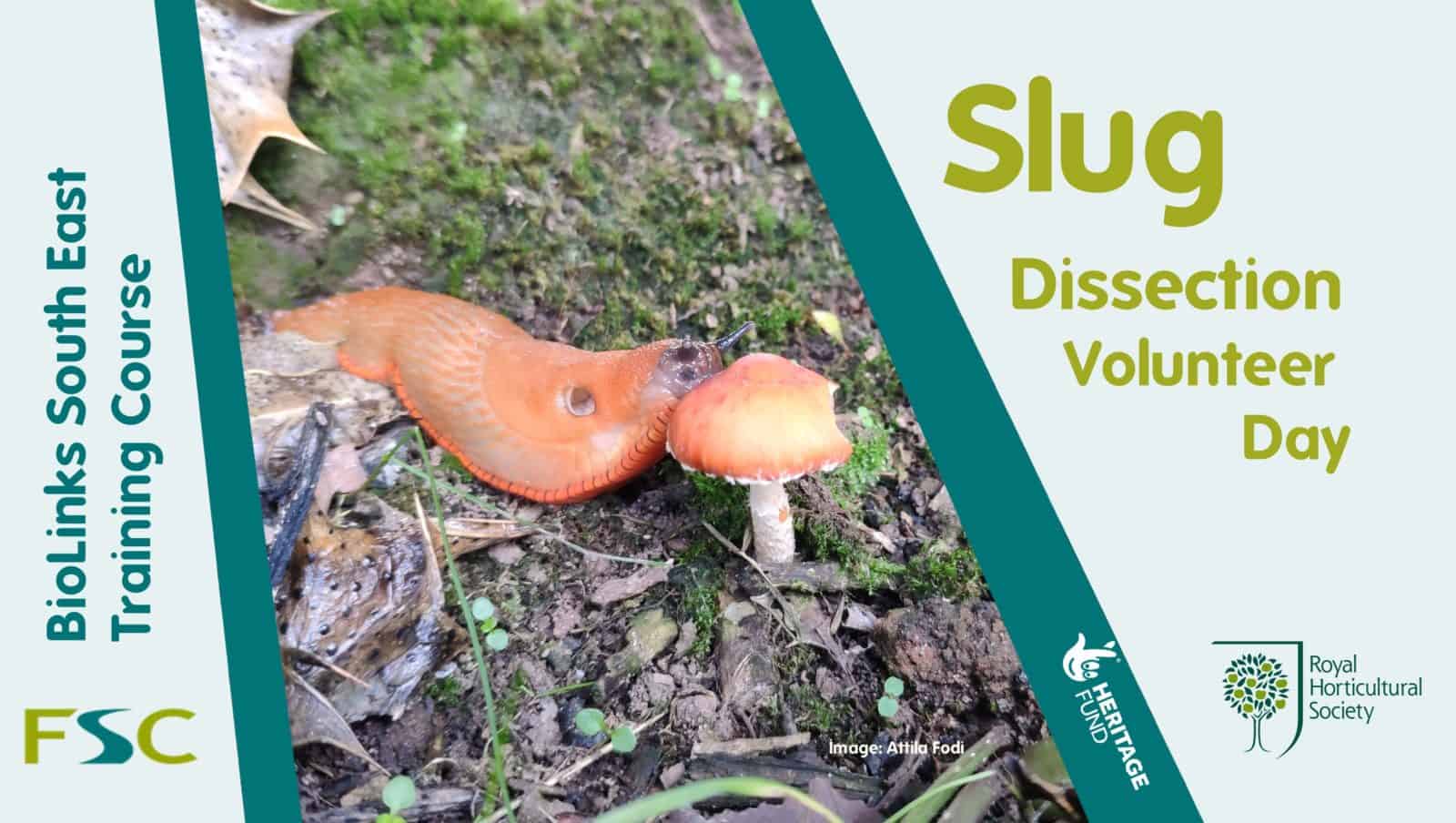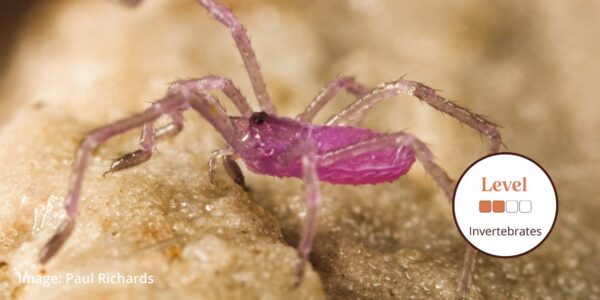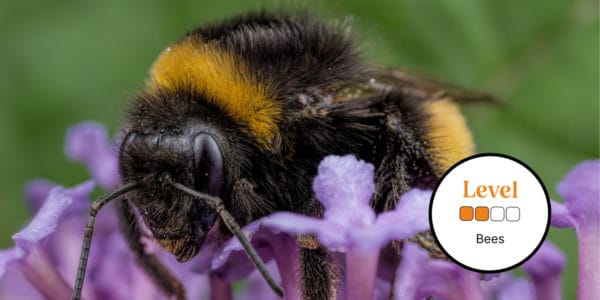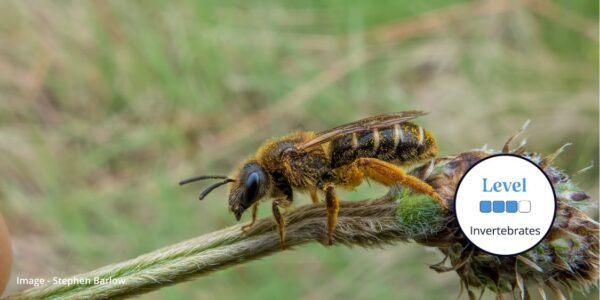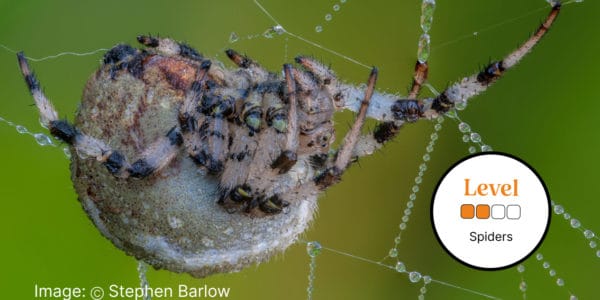There are approximately 40 species of slug in the UK, most of which can be identified by external characters, but some of the more commonly found species can only be reliably identified by dissection. Join us, our slug expert, and other like-minded people to ID slugs to species by dissection.
We will be using the tutor’s collection to dissect specimens that cannot be accurately identified to species from external morphological characters. In these cases we will need to compare the size, location and relative position of the reproductive organs for each specimen. Full instructions and support with dissection, character identification, and comparaitive anatomy will be provided on the day.
Please note that this day will involve using specimens that have been killed and preserved.
What’s included in this event?
-
- Support and guidance from an expert tutor and member of the FSC BioLinks project team.
- Practical experience of dissecting slugs for the purpose of species ID
- Access to our entomological library, microscopes and lab equipment
- A chance to meet like-minded people from a range of different disciplines
- Please email [email protected] if you have any questions
It’s free to join in, however, you must be at least 18 years of age and study space is limited so booking is essential.
You’ll have access to our tea and coffee making facilities but please bring your own lunch and any other refreshments you may require!
Tutor: Imogen Cavadino
Imogen Cavadino first became interested in slugs and snails during a taxonomy and identification module during her masters at university. A chance question and encounter with a national expert led to her completing a one-year TCV Natural Talent traineeship on “Non-marine molluscs” at Amgueddfa Cymru – National Museum Wales in Cardiff. This included sampling terrestrial and aquatic molluscs across South East Wales, identifying material to species level and adding them to the museum’s permanent collections.
Imogen is now working on a PhD on understanding slugs and snail species diversity and ecology in gardens with the Royal Horticultural Society, Newcastle University and Centre for Ecology and Hydrology. As part of her PhD, she is leading the RHS Cellar Slug Survey, collecting data on three large patterned species of slug found in British gardens to understand recent changes in distributions. She is also an ordinary committee member for the Conchological Society of Britain and Ireland, and acts as a verifier for terrestrial mollusc records on iRecord. She is a keen advocate for this often unloved and overlooked fascinating group of terrestrial invertebrates.
Covid Measures
In order to keep our customers and staff safe we ask that anyone attending our centres:
- wears a face covering when in shared indoor space (unless exempt).
- maintains social distancing.
- cleans their hands regularly.
- takes a Covid-19 test before they arrive.
Example Timetable
- Please arrive in time for the course to start promptly at 10:00 am.
- Refreshments will be available from 9.45 am.
- Access will end at 4:00 pm.
What's Included
- Support and guidance from an expert tutor and member of the FSC BioLinks project team
- Practical experience of dissecting slugs for ID
- Access to our entomological library, microscopes and lab equipment
- A chance to meet like-minded people from a range of different disciplines
- Please email [email protected] if you have any questions
Bursaries and Subsidies
FSC BioLinks
FSC BioLinks is an exciting project for FSC in the South East and West Midlands, bringing together existing volunteers with skills in biological recording and identification, and new volunteers.
This project provides subsidised training courses, learning opportunities and digital tools focussed on invertebrate identification for anyone involved or interested in biological recording, to build and strengthen the community.
Invertebrates provide us with many useful ecosystem services, like pollination and decomposition, which we cannot survive without but their numbers are declining. Few people know how to identify or record invertebrates meaning there is a lack of data.
We are delighted to have been awarded a grant of £1.23 million from the National Lottery Heritage Fund for this project.
Before You Attend
Getting to FSC London: Bushy Park
Information on getting to the site can be found here.
When you arrive at The Stockyard gate you may need to call the centre to open the gate. You can reach the staff on site on 020 8941 4398.
What to bring
- Notebook and pencil
- Lunch
- Any study materials and relevant literature you may have
Please note that this day will involve using specimens that have been killed and preserved.
There will be a member of staff with first aid training and access to a first aid kit on site. If you have special medical requirements please let us know as soon as possible so we can plan the course.
Sorry this course has ended

